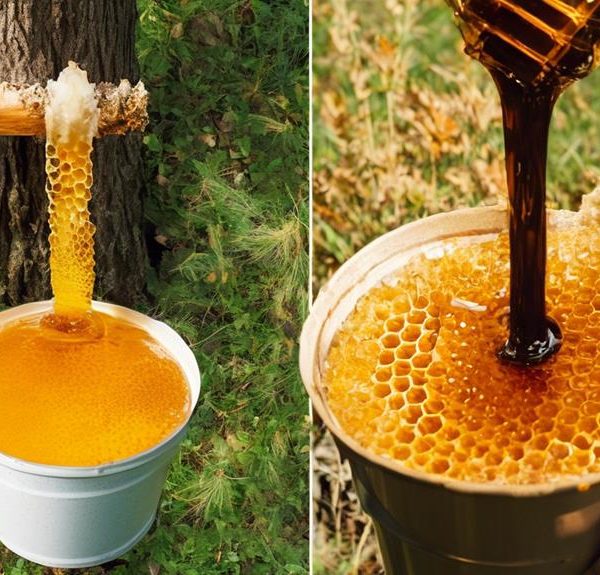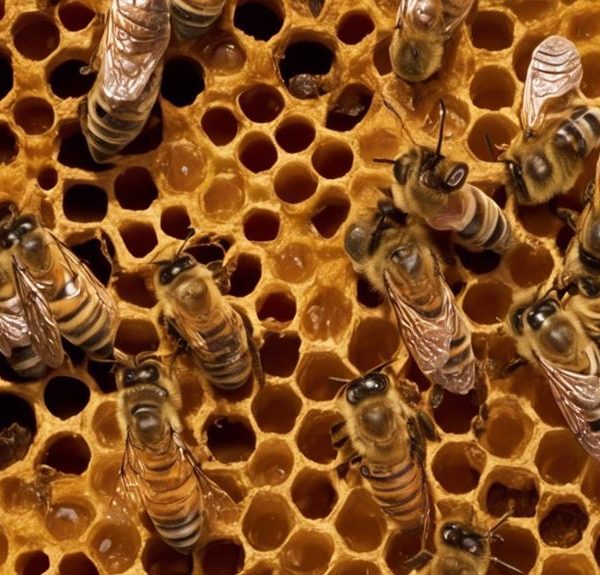Overflowing with potential benefits and risks, discover the surprising truth about honey bee stings and their impact on your health.
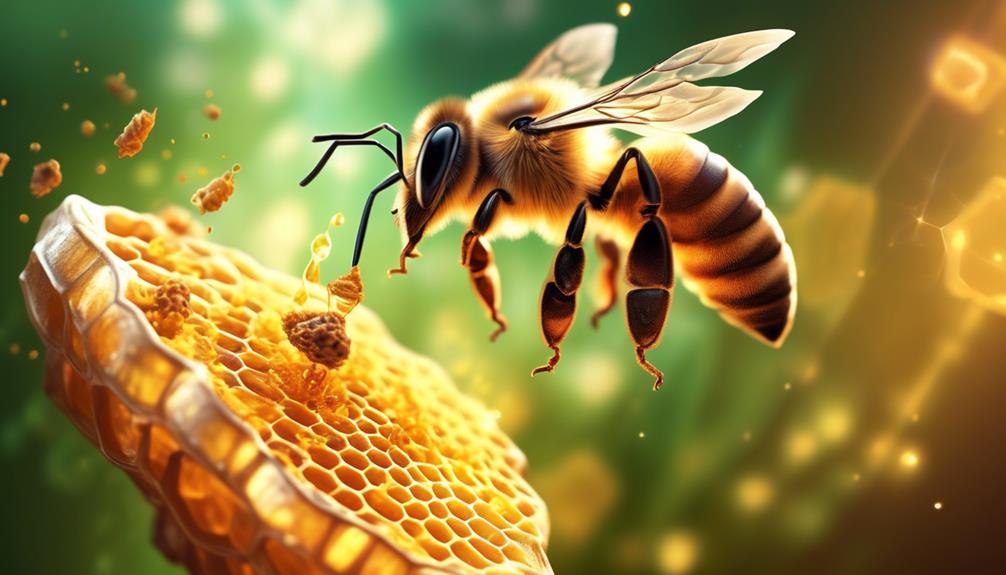
Are Honey Bee Stings Good for You
Navigating the world of natural remedies can feel like walking through a minefield, especially when it comes to something as seemingly counterintuitive as honey bee stings.
You've probably heard some buzz about the potential health benefits of bee venom, but is there any truth to these claims? As it turns out, the answer isn't as straightforward as you might think.
While bee venom contains components that have been linked to certain health benefits, there are also serious risks to consider.
So, should you be rolling up your sleeve for a sting, or is this just another health fad that's bound to leave you feeling burnt? Stick around, and let's explore this topic together.
Key Takeaways
- Bee venom components like melittin, apamin, phospholipase A2, and hyaluronidase have varying effects on the body.
- Bee venom therapy stimulates the immune system, reduces inflammation, and shows potential in treating conditions like rheumatoid arthritis and neurological diseases.
- Precautions for bee stings include recognizing common reactions, carrying an EpiPen for allergies, and seeking medical advice before bee venom therapy.
- Research indicates promising health benefits of bee venom, such as anti-inflammatory properties, neuroprotective effects, and even potential in inhibiting cancer cell growth.
Understanding Honey Bee Stings
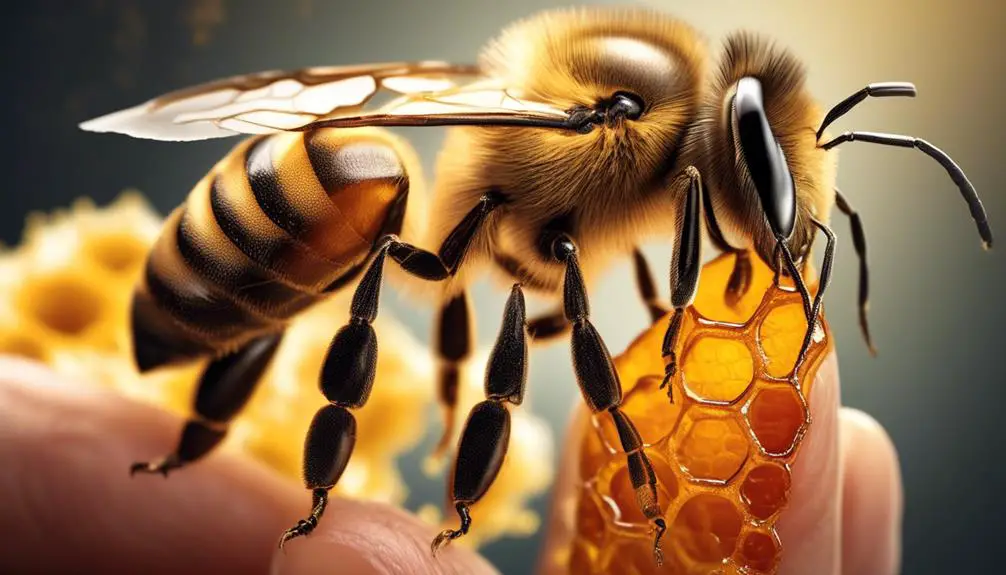
When you're on the receiving end of a honey bee's sting, it's crucial to understand what's happening in your body. Initially, you'll feel a sharp pain as the bee's stinger punctures your skin, delivering venom into your bloodstream. This venom contains a cocktail of proteins and peptides, including melittin, which causes the pain and inflammation you associate with a bee sting.
Research indicates that your immune system kicks into overdrive, sending white blood cells to the site to combat the foreign substance. This results in redness, swelling, and heat around the sting area, which are signs of your body's inflammatory response. In most cases, your body's natural defenses are adequate to deal with the venom. However, in certain individuals with bee venom allergies, this can trigger a potentially life-threatening anaphylactic reaction.
It's interesting to note that some studies suggest potential therapeutic benefits from bee venom, particularly in treating conditions like rheumatoid arthritis or multiple sclerosis. However, it's imperative to balance these potential benefits against the risks, especially for those with known allergies. Remember, understanding the impact of a bee sting on your body is the first step in managing it effectively.
Components of Bee Venom
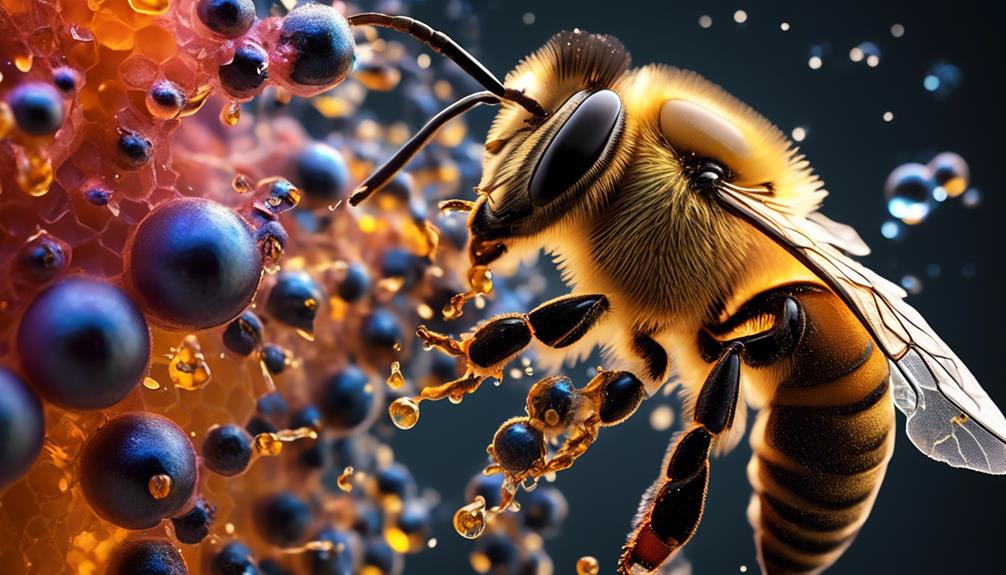
Now that we've explored how your body reacts to a bee sting, let's break down the cocktail of components found in bee venom itself. This complex substance is a blend of proteins, enzymes, and peptides, each with a specific role to play.
Component | Function |
|---|---|
Melittin | This peptide makes up 50% of the venom and is responsible for the pain and inflammation you feel after a sting. |
Apamin | A neurotoxin that can disrupt central nervous system functions. |
Phospholipase A2 | An enzyme that damages cell membranes, facilitating the spread of other venom components. |
Hyaluronidase | An enzyme that breaks down tissue, helping the venom penetrate deeper into the skin. |
It's important to note that the effects of these components can vary greatly from person to person. While some people might experience a mild reaction to a bee sting, others can have severe, life-threatening responses. This is why it's crucial to seek immediate medical attention if you're stung by a bee and experience symptoms like difficulty breathing, swelling of the face or throat, or a rapid pulse.
Health Benefits of Bee Stings
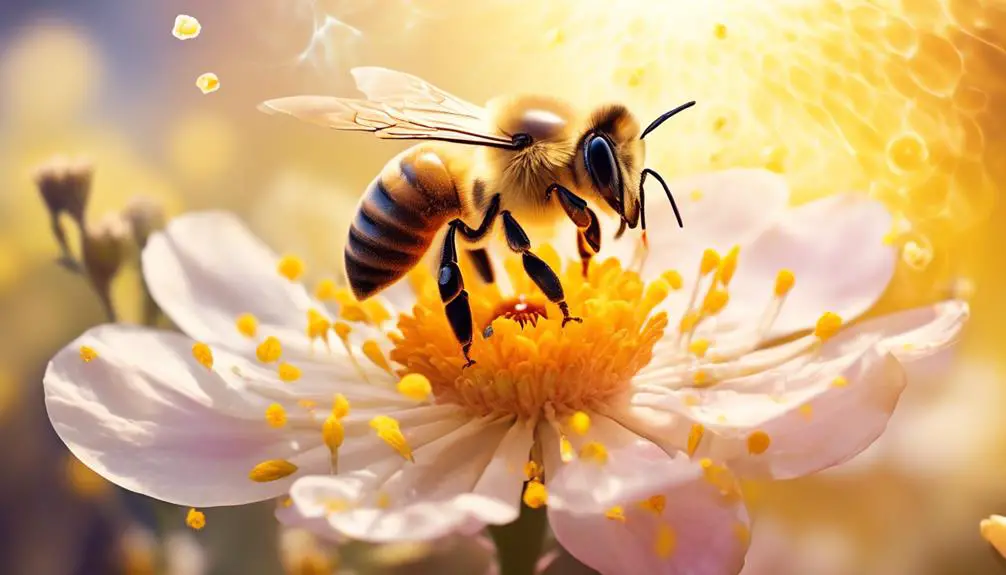
Despite the discomfort they can cause, bee stings have been found to offer several surprising health benefits. Research has shown that the venom in bee stings can stimulate your immune system and reduce inflammation. It's a natural method that's been used for centuries in apitherapy, an alternative medicine that uses bee products.
Studies suggest that bee venom can help soothe symptoms of rheumatoid arthritis, a chronic inflammatory disorder. It's believed to do this by suppressing inflammatory responses and controlling immune cell activity.
Bee sting therapy has also shown potential in treating neurological diseases. The peptides in bee venom can protect brain cells and improve symptoms in conditions like Parkinson's and Alzheimer's.
Despite these potential benefits, you mustn't rush to the garden to get stung. Bee venom can cause allergic reactions, which can be severe in some people. It's essential to seek medical advice before trying any new treatment.
In a nutshell, bee stings could be beneficial, but they're not without risks. More research is needed to fully understand the potential of bee venom and how to use it safely and effectively.
Risks and Precautions
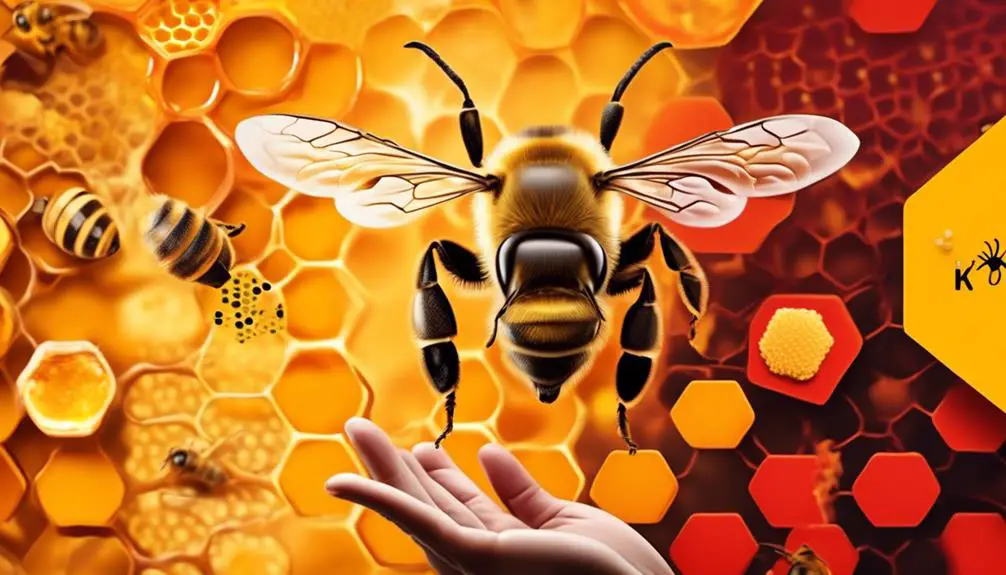
While it's potentially beneficial, it's crucial to understand that bee venom isn't without its risks and certain precautions must be taken. These risks can range from mild discomfort to severe allergic reactions.
Risk | Description | Precaution |
|---|---|---|
Mild Reaction | Includes temporary sharp pain, redness, and swelling around the sting site. | Apply a cold pack and take over-the-counter pain relievers. |
Moderate Reaction | Involves extreme redness and swelling that enlarges over the next couple of days. | Consult your doctor who might prescribe corticosteroid creams or oral antihistamines. |
Severe allergic reaction (Anaphylaxis) | A life-threatening emergency that requires immediate medical attention. Symptoms can include difficulty breathing, hives, rapid pulse, and dizziness. | Carry an emergency epinephrine autoinjector (EpiPen) if you're known to be allergic. |
Do remember, everyone's immune system responds differently to bee venom. Some people might not experience any adverse effects, while others could have a severe reaction to a single sting. Therefore, it's of utmost importance to consult your doctor before trying any form of bee venom therapy.
Therapeutic Uses of Bee Venom
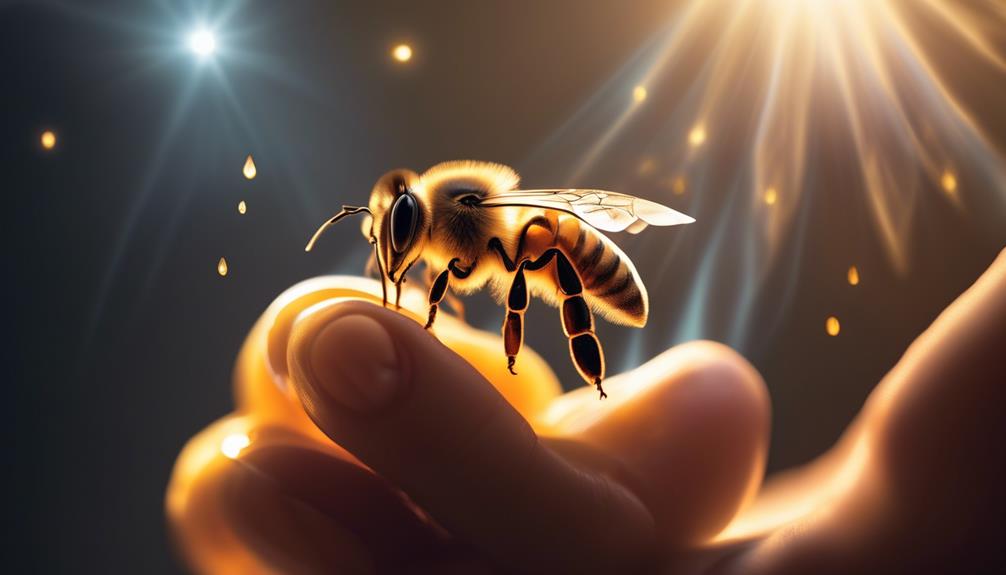
Turning to the therapeutic side of bee venom, you'll find it's been used in various treatments, from relieving arthritis pain to potentially combating certain types of cancer. This venom contains a cocktail of proteins, peptides, and enzymes that have demonstrated anti-inflammatory, analgesic, and anti-cancer properties in several scientific studies.
One of the most potent components in bee venom is melittin, a peptide that's been shown to inhibit the growth and spread of various cancer cells. In fact, a 2013 study published in the Journal of Experimental Medicine found that melittin could selectively destroy tumor cells without harming healthy ones.
Another component, apamin, has been found to have neuroprotective effects, potentially offering therapeutic benefits for neurodegenerative diseases like Parkinson's. Bee venom therapy, also known as apitherapy, has also been used to alleviate pain and inflammation in conditions like rheumatoid arthritis and multiple sclerosis.
However, it's critical to remember that while promising, these studies are preliminary. They've mostly been conducted on animal models or in vitro, and more robust human trials are needed to confirm these findings. Always consult with a healthcare professional before trying any new treatment.
Conclusion
While bee stings can be painful, research suggests they may offer some health benefits, thanks to components like melittin in bee venom. However, it's crucial to remember the risks, including severe allergic reactions.
Bee venom is used in therapies like apitherapy, but always consult a healthcare professional before trying such treatments. Ultimately, while bee stings may have potential health benefits, further research is needed to fully understand and utilize their therapeutic properties.

